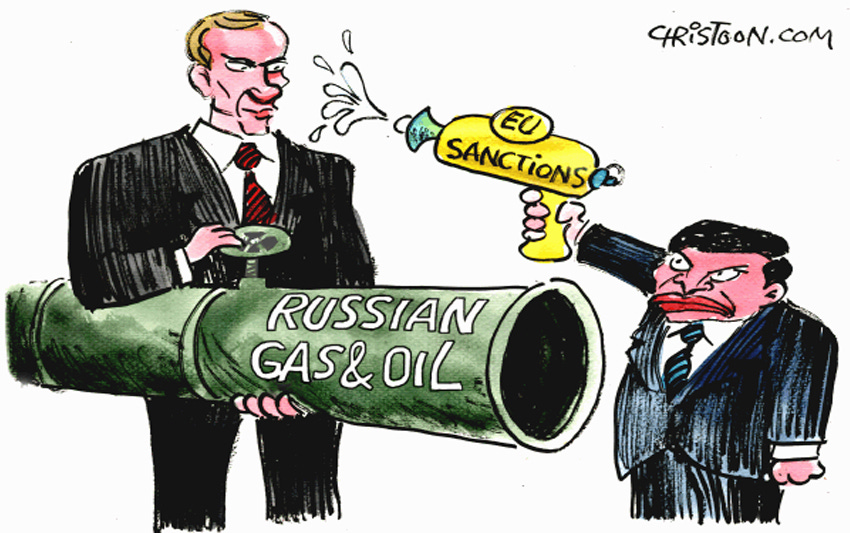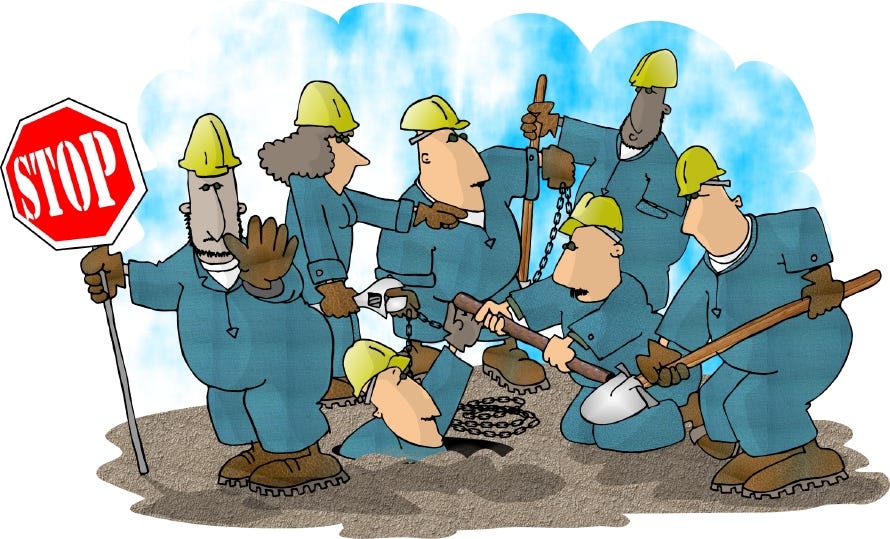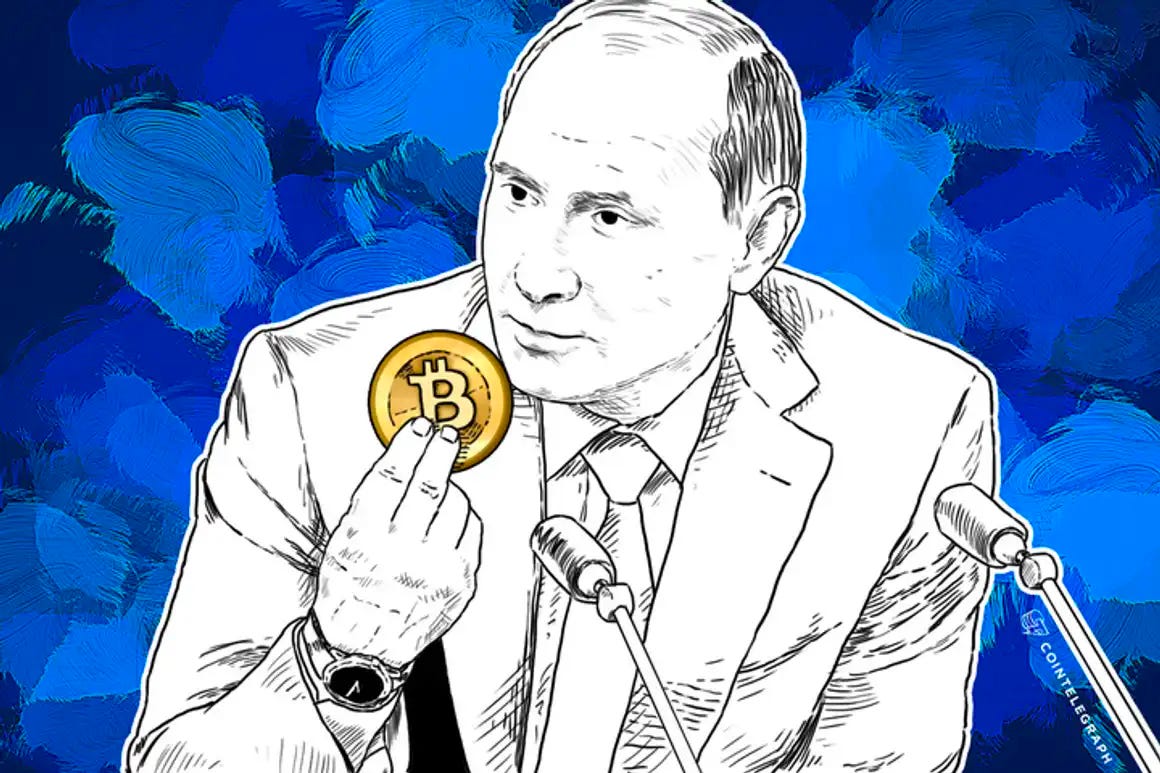Putin's claims to Ukraine. Russian troops in Belarus. Sanctions are too soft. Import substitution failed
February 23, 2022
Putin declares territorial claims to Ukraine.
Mosaics of the day
Russian troops in Belarus: drills to continue or occupation?
Announced sanctions are too soft
Less growth, more inflation
Bank of Russia vs crypto
Import substitution failed
Pressure on Ukraine grows
Vladimir Putin’s decision to recognize the independence of the LPR/DPR has not answered a critical question: Within what borders does Russia acknowledge their existence? The constitutions of these entities state that their borders coincide with the administrative boundaries of the Donetsk and Luhansk regions of Ukraine. Still, the separatists hold absolute control over only a third of this territory. Moreover, the separatists never fully controlled these areas.
Thus, Deputy Foreign Minister Andrei Rudenko stated that Russia has recognized “the borders, within which the leadership of the DNR and LNR exercise their power and jurisdiction.”
Maria Zakharova, spokesperson for the Foreign Ministry, did not support him, saying there is no clarity on this issue. “Now, we need to solve other issues. And this issue will certainly be resolved somehow.”
In turn, presidential spokesman Dmitry Peskov said according to the "both ours and yours" principle: "[The LNR/DNR are recognized as sovereign] within the borders within which [the republics] were proclaimed and exist.
As is often the case, the discussion was brought to a close by Vladimir Putin, who stated that
“We have recognized all their [DNR and LNR] entire documents, including the Constitution. And the Constitution spells out the borders within the Donetsk and Luhansk regions at the time when they were part of Ukraine.”
And he added that border disputes should be resolved in negotiations.
“We expect, I emphasize this, that all disputed issues will be resolved in negotiations between Kyiv’s current authorities and the leadership of these republics?”
Thus, after throwing away one instrument of pressure on Ukraine, the Minsk agreements, the Russian President immediately picked up another: The demand that Ukraine voluntarily alienates part of its territory.
In addition to territorial claims, the Russian President voiced additional demands to Ukraine, after the fulfillment of which it will be possible (in his words) to normalize relations between the two countries: 1) Kyiv must recognize the annexation of the Crimean peninsula by Russia and the results of the so-called referendum on the independence of Crimea. “They came voluntarily and made their decision—to reunite with Russia,” and 2) Kyiv should refuse to join NATO and thus neutralize the idea of neutrality.
Mosaics of the day
Late Monday night, the Federation Council gave its consent to enter Russian troops into LNR/DNR territory. There are numerous reports on social media that Russian tanks have appeared in Donetsk, but Vladimir Putin denies that Russian soldiers have entered. “I’m not saying that the troops will go right now. And where they will go will depend on the specific situation on the ground.”
The Russian President acknowledged the death of the Minsk agreements and related negotiations. “Now the Minsk agreements don’t exist, so what’s to fulfill them if we have recognized the independence of these republics.”
According to Russia’s Emergencies Ministry, about 90,000 people from the LNR/DNR arrived in Russia as of mid-day Tuesday.
The Russian Foreign Ministry said in its Telegram channel that Russia has decided to evacuate its diplomatic personnel in Ukraine. “To protect their lives and safety, the Russian leadership decided to evacuate the personnel of Russian foreign institutions in Ukraine, which will be implemented very shortly.”
“Today, February 22, 2022, through the exchange of notes between the Russian Foreign Ministry and the Foreign Ministry of the Donetsk People’s Republic, as well as the Russian Foreign Ministry and the Foreign Ministry of the Luhansk People’s Republic, an agreement was formalized on the establishment of diplomatic relations between the Russian Federation and the Donetsk People’s Republic, as well as the Russian Federation and the Luhansk People’s Republic at the level of embassies,” the Russian Foreign Ministry said in a statement on its website.
Vladimir Putin's address in connection with the recognition of the independence of the LNR/DNR has been published on the Kremlin website. It is very long, 7,500 words. But if you want to understand how the Russian president sees the world, what he fears, to whom and what claims he makes, take the time to read it. This is a rare case!
Russian troops remain in Belarus
On February 10, Moscow and Minsk began large-scale maneuvers “Union Resoluteness-2022” in Belarus, which ended. Moscow and Minsk announced that the Russian military would return to their permanent bases after the exercises. Last weekend, however, Presidents Vladimir Putin and Alexander Lukashenko decided to continue the practices “due to the increase in military activity near external borders and the aggravation of the situation in Donbas.”
It looks like Russian troops are ready to stay in Belarus forever. At least, that is how one can understand the words of Deputy Commander of the Belarusian Air Force and Air Defense Andrei Lukyanovich:
“The first stage of the joint exercises is over, and now it is to test the reaction forces of the allied state in other areas. We already know that other groups will now be created along the borders. The protection of our borders will be strengthened, including in the airspace of our state, the joint regional system of air defense of the Republic of Belarus, and the Russian Federation. Including taking into account the training centers that have been created on the territory of our country
“The next stages [of the joint exercises], which will be planned by the chiefs of general staffs of the Republic of Belarus and the Russian Federation, we will know a little later, will be worked out in full, and testing will continue in the amounts that our headquarters will plan.”
Sanctions are declared. Is someone scared?
On Tuesday, the U.S., the European Union, and Britain announced new sanctions against Russia. While we had heard many times in the preceding weeks that the sanctions would be synchronized and parallel, in practice, it turned out that such unity had not been achieved.
The UK imposed sanctions on VEB Bank and Promsvyazbank and personal sanctions on Boris and Igor Rotenberg, and Gennady Timchenko.
The European Union announced that foreign ministers had agreed to impose personal sanctions on 351 State Duma deputies and impose personal sanctions on 27 individuals and legal entities and against banks that finance operations in Donbas (without specifying their names) (without identifying mechanisms).
President Biden announced the inclusion of VEB Bank and Promsvyazbank in the sanctions lists, which means blocking their assets in U.S. banks and a ban on settlements in dollars. As well, the American President promised that from Wednesday, the United States would begin to impose personal sanctions. In addition, President Biden said that “we will cut off the Russian government from access to Western finance,” adding that Russia would no longer be able to borrow in the U.S. and European markets. At the same time, he noted that he plans to do everything possible to ensure that only Russia, and not the U.S. and its allies, will suffer from sanctions.
While such a set of sanctions does not seem capable of causing even minimal damage to the Russian economy, we can talk about creating inconvenience. The most serious is the imposition of sanctions against VEB, but it seems that they may become much more painful for foreign investors than for Russia. The fact is that VEB is the agent of the Russian government for servicing foreign debt, including repayment and payment of coupon income on Eurobonds. The nearest coupons are due on March 16, and if before that time the Russian Ministry of Finance fails to change the paying agent, a technical default will follow.
So far, such a set of sanctions does not seem capable of causing even minimal damage to the Russian economy; we can talk about creating inconvenience. The Russian market agreed with my assessment: since the beginning of the main trading session, most stock quotes began to rise steadily, and by the end of the day stock indices rose by 10%-13%.
Less growth, more inflation
At the end of last week, Rosstat presented a preliminary estimate of economic growth for last year: GDP grew by 4.7%. Judging by the data for the first three quarters, the Russian economy accelerated sharply in the previous quarter of last year, but the sources of that growth are still unknown. Traditionally, Rosstat provides data for the fourth quarter in March. At the same time, Rosstat revised the results of 2020, reducing the rate of decline from 3% to 2.7% due to improved estimates of the dynamics of construction.
The acceleration of growth in 2021 caused the Ministry of Economy to revise its forecast for the current year and reduce it to 2.8% against 3% fixed in the budget law. At the same time, other indicators will be revised: the inflation rate will be raised to 5.9% (the previous estimate was 4%), and oil prices to $77.7 per barrel of the Urals blend (the previous estimate was $62.2). While the inflation and oil price forecasts are not particularly questionable, the first two months of the year can revise earlier estimates. The change in the economic growth forecast just a month and a half after the start of the year looks somewhat strange. It turns out that the Ministry of Economy does not see the potential and sources of economic growth in Russia at all. Being responsible for the growth rate the Ministry should have “a deep sense of gratitude” to the Deputy Prime Minister Khusnullin, who last year financed budget investments ahead of schedule, having accelerated inflation and shifted part of the economic growth from 2022 to 2021.
Bank of Russia continues fighting
The Bank of Russia does not intend to retreat from its tough stance on the regulation of cryptocurrencies: The regulator has prepared draft laws that prohibit the issue, circulation, and possession of cryptocurrencies in Russia.
Two weeks ago, I commented on the emergence of the government concept on this issue (“Cryptocurrencies to be”) and credited the government with the fact that it managed to reach an agreement with the Bank of Russia without the President’s participation. However, as it has become clear, the government ignored the opinion of the Bank of Russia, and now it will be impossible to find a compromise without discussion in the Kremlin.









